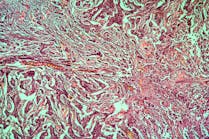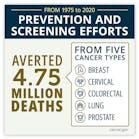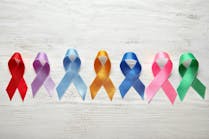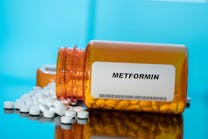Adding an anti-inflammatory drug to anti-PD1 checkpoint inhibitor immunotherapy has shown great promise as a new strategy against advanced lung cancer, based on results from a small clinical trial led by investigators at the Abramson Family Cancer Center at the University of Pennsylvania Perelman School of Medicine.
The results were published in Science, based the strategy on an accumulating body of evidence for the dual nature of inflammation—it can be beneficial against infectious pathogens and cancers in the short term, but can also lead to a weakened immune system when it becomes chronic. Signs of this chronic inflammatory response, particularly involving a cytokine called interferon, are often seen in patients taking anticancer immunotherapies and are linked to worse outcomes.
In the study, the researchers used a drug called a JAK1 inhibitor to specifically reduce persistent inflammatory signaling while not interfering with the initial inflammatory signaling required to generate antitumor activity. The JAK1 inhibitor was given for six weeks in 21 patients with advanced non-small cell lung cancer (NSCLC), but only after they had received two doses of anti-PD1 immunotherapy. The result was an overall response rate of 67 percent and median progression-free survival of almost 24 months both of which are very high for advanced NSCLC.
Although the trial did not include a comparison group, the results suggested a striking effectiveness for the combination. The response rates for pembrolizumab alone in large clinical trials in stage 4 NSCLC patients usually has been approximately 45 percent. In this case, the overall response rate was 67 percent—and even now, a significant proportion of the patients remain alive, suggesting many of these responses are durable.
Perelman School of Medicine at the University of Pennsylvania release on Newswise





